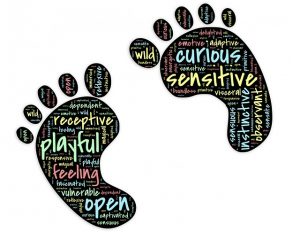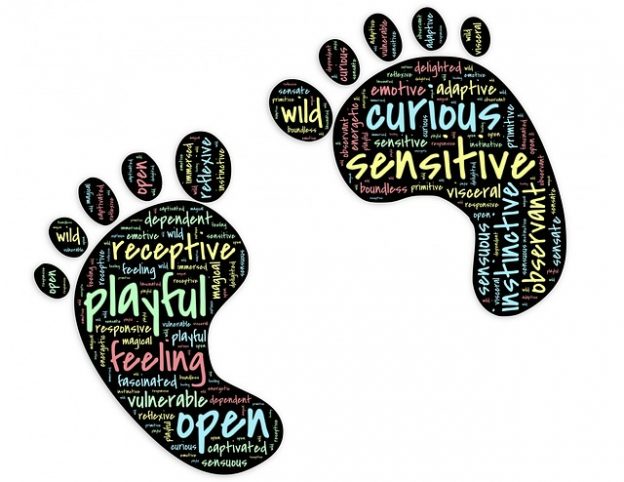Do you ever feel like your confidence and self-esteem are at an all-time low? Sometimes, it can feel like the weight of the world is on your shoulders, and no matter how hard you try, nothing seems to go right.
But what if I told you that there are evidence-based strategies that can help boost your confidence and self-esteem? Think of these strategies as a life raft in a sea of self-doubt. They can help lift you up when you’re feeling down, and guide you towards a more positive outlook on life.
In this article, we’ll explore five powerful techniques that have been proven to work time and time again. From the power of positive self-talk to surrounding yourself with positive influences, these strategies will help you build resilience, increase your self-worth, and ultimately lead a happier life.
The Power of Positive Self-Talk
 The section on the power of positive self-talk shows how you can use words to improve your mindset. One of the most effective ways is through affirmations, which are positive statements that you repeat to yourself regularly.
The section on the power of positive self-talk shows how you can use words to improve your mindset. One of the most effective ways is through affirmations, which are positive statements that you repeat to yourself regularly.
The benefits of affirmations include boosting your confidence and self-esteem, as well as reducing stress and anxiety. Overcoming negative self-talk is also a crucial part of using positive self-talk.
Negative self-talk can be damaging and affect our mental health negatively. By identifying patterns in our thoughts and replacing them with positive affirmations, we can rewire our brains to think more positively about ourselves.
It’s essential to remember that positive self-talk isn’t about ignoring challenges or pretending everything is perfect. Instead, it’s about building resilience and approaching situations with a growth mindset.
By focusing on what we can control, such as our thoughts and reactions, we empower ourselves to overcome obstacles confidently.
Practicing Self-Compassion
By treating yourself with kindness and understanding, like a caring friend, you can plant the seeds of self-love and grow your inner garden. Self-compassion allows us to acknowledge our imperfections and embrace ourselves despite them. It’s an essential component in boosting your confidence and self-esteem.
Here are some benefits of practicing self-compassion in relationships:
– You become more patient with yourself, leading to increased patience towards others.
– You begin to see situations from different perspectives, which helps improve communication.
– You develop empathy for others by first extending it towards yourself.
– You feel more secure in yourself and less dependent on external validation.
Try these simple exercises for daily practice:
– Write down affirmations that remind you of your worthiness and read them every day.
– When faced with negative thoughts or emotions, ask yourself: “What would I say to a friend going through this?” Then offer those same kind words to yourself.
– When you make a mistake or experience failure, treat yourself as you would a loved one who made the same error – with kindness and compassion.
Remember that self-compassion is not about ignoring or excusing mistakes but rather acknowledging them while still being kind to ourselves. With time and practice, it becomes easier to extend this same level of compassion towards others as well.
Building Resilience through Mindfulness
Practicing mindfulness can help you build resilience and cope with life’s challenges in a more peaceful and present way. One of the most effective ways to practice mindfulness is through mindful breathing. By focusing your attention on your breath, you become more aware of the present moment and are less likely to get caught up in anxious or stressful thoughts.
Take a few deep breaths before starting your day or whenever you feel overwhelmed. Another powerful tool for building resilience is gratitude journaling. Taking time each day to write down things you’re grateful for can help shift your focus from what’s going wrong to what’s going right in your life.
This helps cultivate a positive mindset and makes it easier to bounce back from setbacks. Try writing down three things you’re grateful for each night before bed or first thing in the morning. Finally, remember that building resilience takes time and practice.
Be patient with yourself as you learn new skills and strategies for coping with stressors. And don’t be afraid to ask for help when needed – reaching out to friends, family, or a mental health professional can be an important part of building resilience and maintaining good mental health over time.
Setting Achievable Goals
Let’s explore how setting achievable goals can be a powerful compass to navigate towards success and fulfillment. By establishing clear and measurable targets, you create a roadmap that enables you to celebrate successes along the way. Achieving smaller milestones builds confidence and motivation, making it easier to tackle bigger challenges in the future.
However, obstacles are bound to arise on your journey towards achieving your goals. When faced with setbacks or failures, it’s essential not to lose sight of your destination. Instead, take some time to reflect on what went wrong and use this insight to make adjustments to your plan.
Remember that setbacks are part of any process; they don’t define you or mean that you cannot ultimately achieve what you set out for. When setting achievable goals, keep in mind that they should be specific, measurable, attainable, relevant, and time-bound (SMART).
Use this framework as a guide when creating targets for yourself or breaking down larger objectives into smaller ones. By adopting this approach, you’ll have a clear understanding of what needs to be done within a particular timeframe. This clarity allows you to stay focused and motivated while working towards success without feeling overwhelmed by the magnitude of the task at hand.
Surrounding Yourself with Positive Influences
Surrounding yourself with people who uplift and inspire you can have a tremendous impact on your journey towards success. It’s important to establish boundaries and let go of toxic relationships that drain your energy and confidence. By surrounding yourself with positive influences, you’ll find it easier to maintain a positive outlook and stay motivated.
Negative relationships or those that are constantly critical or unsupportive can hold you back from achieving your goals. Sometimes, letting go of these unhealthy connections is necessary in order to move forward.
This doesn’t mean cutting off everyone who disagrees with you, but rather recognizing when someone isn’t contributing positively to your life. When choosing positive influences, seek out individuals who share common values and interests.
Surrounding yourself with supportive friends, mentors or colleagues who encourage growth and celebrate successes can boost self-esteem by providing validation for hard work and achievements. Remember that building a strong support system takes time, effort, and patience – but the benefits are well worth it!
How long does it take to see results when practicing these strategies?
Consistent practice of evidence-based strategies to boost your confidence and self-esteem can yield great benefits, but progress may not always be quick.
Think of it like planting a seed in the ground; you water and nurture it every day, but it takes time for the plant to sprout and grow.
Similarly, practicing these strategies daily will eventually lead to positive changes in how you view yourself and your abilities. However, roadblocks to progress may arise such as negative self-talk or setbacks that require patience and perseverance to overcome.
With dedication and commitment, you can see significant results over time in your confidence and self-esteem.
Are there any potential downsides or negative effects to using these strategies?
It’s important to be aware of the potential drawbacks, criticisms, and limitations that come with using confidence and self-esteem boosting strategies.
While these techniques can be effective in increasing your overall sense of well-being, they may not work for everyone. Some people may find that certain approaches feel forced or unnatural, while others may struggle to maintain their new levels of confidence over time.
Additionally, there is some debate among experts about the long-term effects of relying on external validation rather than developing intrinsic self-worth.
Despite these concerns, it’s still worth exploring different techniques and finding what works best for you – just make sure to approach them with a critical eye and realistic expectations.
How do these strategies differ from other methods of improving confidence and self-esteem?
When it comes to improving your confidence and self-esteem, there are countless methods out there. However, the strategies presented here offer unique benefits that set them apart from others.
These evidence-based techniques have been scientifically proven to boost confidence and self-esteem in a practical and sustainable way. What makes these strategies stand out is their emphasis on changing negative thought patterns, building resilience, and setting achievable goals.
By implementing these techniques consistently, you can cultivate a more positive mindset and increase your overall well-being. So if you’re looking for an effective way to improve your confidence and self-esteem, give these evidence-based strategies a try!
Can these strategies be used in conjunction with therapy or other forms of mental health treatment?
Combining strategies for improving confidence and self-esteem with therapy can be a game-changer.
Imagine having access to not just one, but multiple tools to help you build your sense of self-worth and belief in yourself.
The effectiveness of these strategies is only magnified when used alongside therapy, as a trained professional can guide you through the process and help you tailor them to your unique needs.
By incorporating evidence-based techniques into your mental health treatment plan, you’re setting yourself up for success in achieving greater confidence and self-esteem.
### How do these strategies apply to individuals with specific mental health conditions, such as anxiety or depression?
Coping mechanisms for anxiety and depression are highly personal and can vary greatly between individuals. When it comes to boosting confidence and self-esteem, it’s important to personalize strategies based on your individual needs.
This is especially true for those with specific mental health conditions such as anxiety or depression. Some coping mechanisms may work better than others depending on the severity of your symptoms and what triggers them.
It’s essential to work closely with a mental health professional who can guide you in identifying effective coping strategies that work best for you. Remember, everyone’s journey towards improved mental well-being is unique, so be patient with yourself as you experiment with different approaches until you find what works best for you.
You’ve just learned about evidence-based strategies to boost your confidence and self-esteem. By implementing these techniques, you can change the way you talk to yourself by using positive self-talk and practicing self-compassion.
Imagine waking up each morning with a sense of purpose and drive, knowing that you’re capable of achieving anything you set your mind to. Through building resilience with mindfulness and setting achievable goals, you’ll become equipped with the tools needed to overcome any obstacle that comes your way.
Surrounding yourself with positive influences will only further enhance this newfound sense of confidence and self-worth. You’re capable of greatness, so go out there and show the world what you’re made of!






